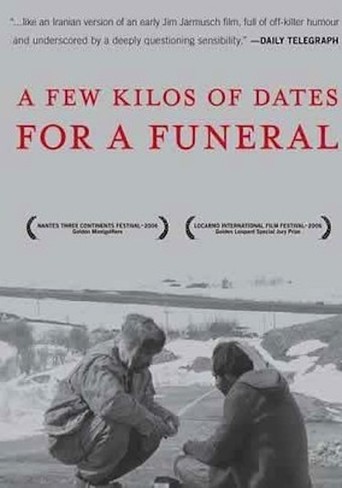

A desolate gas station in a remote (I really mean it!) part of North East of Iran becomes the bedrock of several stories about love, forgiveness, betrayal, dishonesty and honesty! The new wave of Iranian Filmmakers and their style of Cinéma vérité have come to the attention of many international festivals. From master filmmaker Abbas Kiarostami to his collaborators such as Bahman Ghobadi and Jafar Panahi and recently Saman Salour who are creating masterful films and changing the face of cinema in Iran. This beautiful, ethereal work of art is so powerful and so universal that enthralls you and keeps you admiring from the beginning until the bravura finale. The simple, eloquent and powerful screenplay is matched by Salour's minimalist direction and Aslani's terrific cinematography to create an unforgettable movie whose images will stay with you for a long time and are definitely good reminders of work of another master filmmaker, Emir Kusturica . Kudos too, to superior acting from the entire cast. a real sleeper. don't miss this one.
... View MoreA Few Kilos of Dates for a Funeral (2006) ****Few recent emergence's in the film world have been exciting as the Iranian New Wave. Abbas Kiarostami was one the first to draw attention, with his 1997 Palm D'or winning A Taste of Cherry. He continues to make exciting films. Kiarostami was followed by Bahman Ghobadi, who arrived on the world scene with his films A Time for Drunken Horses and Turtles Can Fly. Again and again, what shines through in these films is their love and respect for humanity - its agonies, its absurdities, and its often bittersweet joys. Perhaps it has something to do with Iran's censorship, poverty and desolation that they just have more respect for the art of living. After all, living really can be an art form at times.One of the most promising new Iranian filmmakers is Saman Salur. He is the director of A Few Kilos of Dates for a Funeral. It is at once a bleak black and white stunner, an absurdest black comedy, and bittersweet swan song to the search for love. Its genre is life.The film is set around three protagonists. Two run a gas station on the outskirts of town, on a road that gets next to no traffic anymore, and so they get next to no customers. They live and work out of a decrepit van on site, its windows covered in plastic. Sadry is a former strongman, now blind in one eye. He is the boss of the station. Yadi is his eager to please assistant, who usually annoys more than pleases. Finally there is the postman, Abbas, who longs to trade in his break-less bicycle for a motorcycle, while he must care for his mentally ill brother.Each is longing to be loved in different ways. Sadry is the most interesting of the three. He buys a TV so he can watch the weather constantly. He secretly prays for snow. He goes daily to a woman who it appears lives in her car. She does not reply when he speaks to her. Only slowly do we even realize that she is not ignoring him because she doesn't' like him, but she ignores him because she is dead. Despite this apparent macabre situation, it's actually quite touching. The lifeless Sadry somehow finds comfort in her lifeless presence. The cold weather has preserved her, and he prays for snow so that she may remain hidden. How ironic that the only thing keeping him living is death. Yadi longs for the love of a woman he met but once. He writes her letters, delivered by the postman whom he has a deal with for each month. Yadi's optimism seems to mask a profound sadness, especially considering she has not once replied. Why she does not reply only comes with time, and despite uncertainty returns a flicker of hope into Yadi's and our lives.Abbas is something of a conduit for the other two. Although he is not the center of the story, what happens usually revolves around him.The film really takes its time getting where its going, and only very slowly reveals its plot. This is sure to frustrate viewers. It left me a bit confused in my feelings regarding the picture in its first half hour, but as it reaches its finale any doubts were erased. Salur employs bleak but beautiful black and white photography. The snowy desert ranges of winter time Iran are haunting. The landscape adds more weight to my personal theory that desolation is often more beautiful than the grandest of extravagances. The camera always moves with the eye of an artist, and Salur is not afraid to employ patience and oddity in his setups.In life, nothing really is ever what it seems. Even what appear to be (and sometimes are) betrayals end up as blessings in disguise. No one is on top of things. In the one who does seem to really get what he wants gets it by plagiarism. Which is not to say that the movie is totally bleak. No it is filled with some bittersweet moments of joy. Yadi and Sadry have moments of slapstick humor together, as does one joke involving the postman's bike - he has to be tackled so he can stop by Yadi, who waits for him and times it out. Even David Beckham turns up as a cardboard cut out sent to attract customers. Although nobody really wins, no one loses either. We'll be left with a flicker of hope, and for Sadry, bittersweet but ultimately uplifting gifts of life. Human's are strange animals, but we can see that there is hope for us all.
... View More